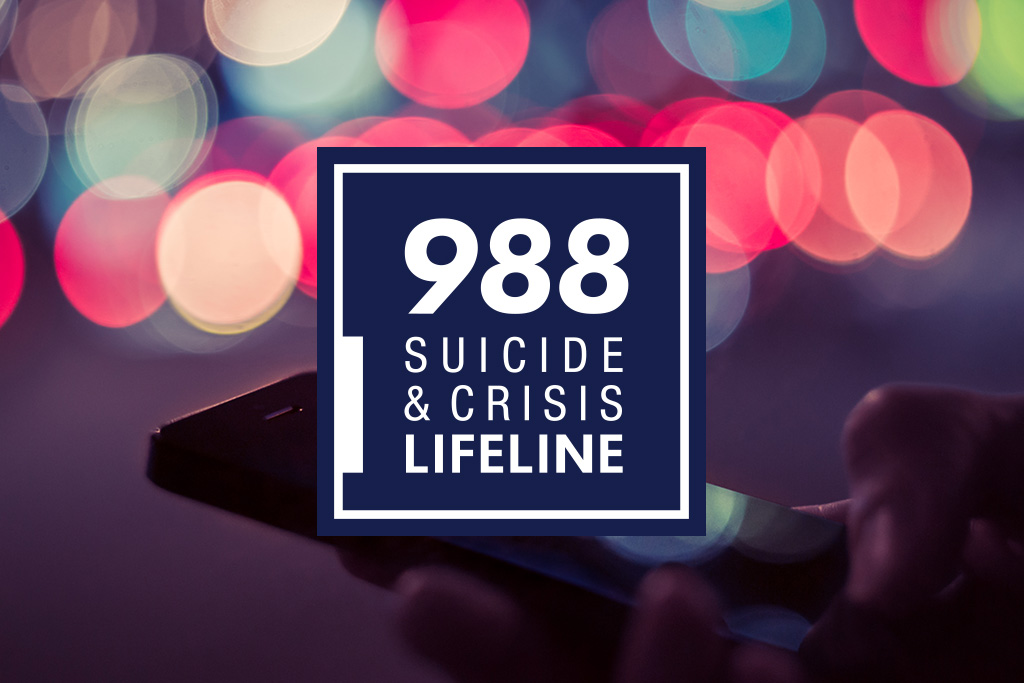We know there may be many reasons for your visit to this site. You may be looking for information about the kinds of programs and services we offer or simply general information about youth suicide prevention. Perhaps you’re also checking out links to additional resources.
There may be some of you, however, who are hoping to find information to help you with your own thoughts or feelings about suicide. While this is not something you will specifically find on this site, what we can offer you is the phone number for the national suicide prevention hotline.
Here’s why we think this can help: Suicidal thoughts or feelings can make us feel frightened and overwhelmed. We can feel crazy or worried we’re going crazy and may be embarrassed to share what we’re thinking with others. Or maybe we’ve tried to talk about it and were dismissed (“Come on, you don’t really feel that way!”), or made fun of (“There you go again, you wimpy cry-baby!”), or not taken seriously (“You’re always talking about that- one of these days maybe you’ll do it”). Perhaps the people we talked to didn’t know what to say so they just ignored us and said nothing.

Just because we couldn’t find someone who listened in a helpful way, though, doesn’t mean we should give up! Talking about suicidal thoughts and feelings—with the right person—can make all the difference in the world. There’s this writer Mary Karr who wrote a poem about suicide and she said, “Your mind’s a dangerous neighborhood: don’t go there alone.”
She knows what she’s talking about—when we’re in scary place —whether they’re in bad neighborhoods or in the dark corners of our mind—we’re always better off when we’re with someone. And the people who answer the phone at the suicide prevention hotline talk to people who think about suicide all the time—so they know how to listen and walk through those dark corners with us.
Here’s something else we think it’s important for you to know:
Lots of people think about suicide at one time or another in their lives, teens included. Usually it’s because they’re struggling with problems in their lives that seem overwhelming, and they feel trapped, helpless, and hopeless. It isn’t that they want to die—they just want to stop feeling miserable. They may be depressed, angry, or empty- but whatever they feel, they’re not thinking clearly.
Check it out online at: suicidepreventionlifeline.org
Help Prevent Teen Suicide
If you or any of your friends are feeling this way and have had thoughts of suicide, the most important thing to do is to talk immediately with an adult you trust. Sometimes friends tell us things in confidence and make us promise not to tell anyone else. You may have done this yourself. Secrets can take on a life of their own and become even more powerful because they’re private. Keeping the secret of suicide doesn’t help anyone—it can actually make things worse. Remember, “Friends Help Friends” – so when someone tells you something that worries you, make sure you tell a trusted adult right away.
If you don’t know an adult who would be helpful, call that hotline number 988 and ask them to help you figure out what to do.
Crisis Resources for Teens
In any emergency situation, please call 911 or visit your local emergency room.

Are you concerned that someone you know maybe at risk for suicide?
Get to know the FACTS or warning signs:
feelings
Expressing helplessness, sadness, feeling like a burden, emotional exhaustion and hopelessness.
actions
Displaying severe/overwhelming pain or distress, aggression, risky behavior, online suicide searches.
changes
Showing worrisome behavioral cues or marked changes in behavior. This includes withdrawal from friends or changes in social activities, anger or hostility, or changes in sleep.
talk/
threats
Talking about, writing about, or making plans for suicide.
situations
Experiencing stressful situations including things that involve loss, change, personal humiliation or disciplinary actions.
Spreading Awareness. Promoting Resilience.
Training Professionals. Strengthening Communities.
Useful Links
- Parent/Caregiver’s Online Toolkit: Guide to Navigating Youth Behavioral Health
- Suicide Prevention Lifeline
- New Jersey Crisis Resources for Teens
- National Crisis Resources for Teens
- When a Friend Dies by Suicide
- When a Friend is Talking About Suicide
- A Message for Teens
- Mental Health Resources for College Students
- Top 5 Mental Health Problems Facing College Students
- Why You Should Stop Saying “Committed Suicide”


